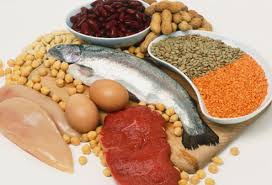

A diet high or moderate in animal-derived protein may increase the risk for diabetes, cancer and all-cause mortality, according to study data published in Cell Metabolism, under Morgan E. Levine, PhD, of the Davis School of Gerontology at the University of Southern California

Morgan, and colleagues assessed data from the Third National Health and Nutrition Examination Survey, which followed 6,381 adults aged at least 50 years for nearly 2 decades. The mean age of the study participants was 65 years.

Overall, participants with high- and moderate-protein intake had higher risks for diabetes-related mortality compared with the low-protein intake group.The research shows that a low-protein diet in middle age is useful for preventing cancer and overall mortality, through a process that involves regulating IGF-I and possibly insulin levels.

Although the study findings show that high-protein intake during middle age can be harmful, high-protein intake may be beneficial for older adults. Protein controls insulin-like growth factor,whose levels dramatically decrease after age 65 years and can lead to frailty and muscle loss, according to researchers.

